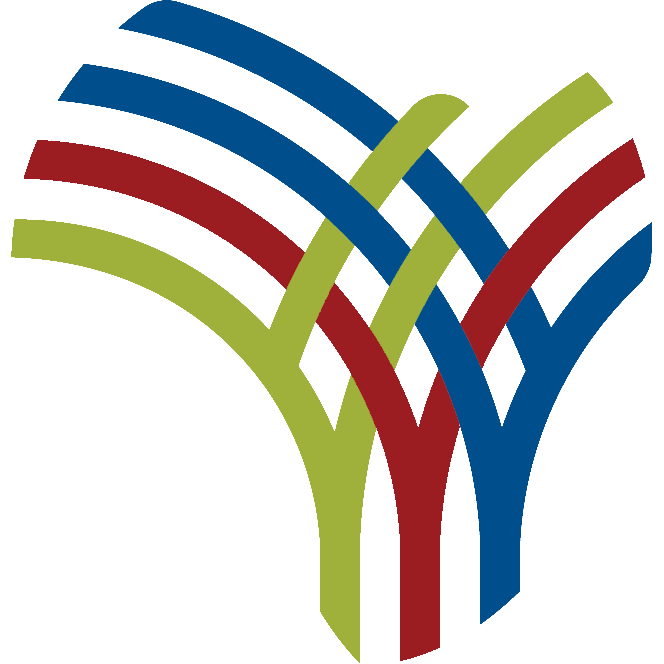Tanzania kupata Sh33 bilioni za mabadiliko tabianchi
Fedha hizo zimelenga kusaidia ngazi ya jamii na Serikali za mitaa ikiwa ni moja ya mkakati wa utekelezaji wa mfuko huo wa mabadiliko ya tabianchi mwaka 2021-2026Continue Reading
Fedha hizo zimelenga kusaidia ngazi ya jamii na Serikali za mitaa ikiwa ni moja ya mkakati wa utekelezaji wa mfuko huo wa mabadiliko ya tabianchi mwaka 2021-2026Continue Reading

ZANZIBAR — THE Zanzibar government has reported that the implementation of e-payments in its financial systems has significantly reduced fraud.
Minister for Infrastructure, Communications and Transport, Dr Khalid Salum Mohammed informed the House of Representatives that the adoption of technology in various financial systems has helped identify and close many loopholes that previously resulted in financial losses within public institutions.
Dr Mohammed was speaking on behalf of Dr Saada Mkuya Salum, the Minister of State in the Office of the President (Finance and Planning), who was absent during the session.
His remarks were in response to a question from Mr Bakar Hamad Bakar, the representative for Wawi constituency, who inquired about the benefits of digitalisation in the financial system.
“The transition to digital payments has improved financial discipline and minimised fraudulent activities by dishonest public servants,” Dr Mohammed stated.
He also emphasised the ongoing push for cashless transactions and urged customers to utilise e-payment options instead of cash.
Source: allafrica.com
Takwimu za Sensa ya Majengo ya Mwaka 2022 zinaonyesha asilimia 24.9 ya majengo milioni 13.9 (13,907,951) ya Tanzania Bara yana huduma ya maji, huku hali ikiwa tofauti kwa majengo milioni 10.Continue Reading
DAR ES SALAAM: PLAN International Tanzania has encouraged girls nationwide to step forward and articulate the challenges they face in pursuing their goals, including leadership roles.
The organisation’s Director, Ms Jane Sembuche, made the call during a press briefing in Dar es Salaam about the upcoming International Day of the Girl Child celebrations.
Ms Sembuche announced the launch of two campaigns, “Girls Take Over” and “Hear Our Voices,” aimed at empowering girls to express their concerns to relevant authorities.
The celebrations are expected to attract hundreds of girls from over 60 countries where the organisation operates, advocating for these campaigns.
The International Day of the Girl Child, observed annually on October 11, seeks to raise awareness about the importance of safeguarding girls’ rights and promoting their empowerment globally.
Ms Sembuche urged the government to address challenges hindering girls from achieving their aspirations, including the revision of the Marriage Act of 1971 to eliminate the influence of early marriages.
ALSO READ: THN urged to enhance girls’ participation in economy
She also called for enhanced protection for girls, particularly against sexual violence, and increased investment in their well-being.
Alumna of the “Girls Take Over” campaign, Ms Jacqueline Mtamya, highlighted the programme’s impact on her leadership skills and ambassadorial positions.
Meanwhile, Ms Zafaran Ramadhan, a graduate from the University of Dar es Salaam, stressed the importance of encouraging girls to pursue science subjects to navigate the evolving landscape of science and technology.

Get the latest in African news delivered straight to your inbox
She noted that more girls in these fields would enhance efforts to combat gender-based violence.
Ms Mariam Surve, a student at the Lugalo Military Medical School of Science and Medicine and a mental health advocate, emphasised the opportunities offered by Plan International’s campaigns, particularly “Girls Take Over,” as a significant platform for building confidence and showcasing leadership abilities.
“I believe that through the ‘Girls Take Over’ campaign, I will become open-minded and gain exposure to fulfill my dreams.
Through our ‘Hear Our Voices’ campaign, I urge governmental and non-governmental organisations to support us. We, as girls, possess the power, strength, determination, and dreams. What we lack is hope and the support to create a conducive environment to achieve our dreams,” stated Ms Surve.
Source: allafrica.com
Rais wa Chama cha Madaktari Tanzania (MAT), Dk Mugisha Nkoronko ametaja vipaumbele atakavyoanza navyo katika uongozi wake wa miaka miwili.Continue Reading
Dar es Salaam. Jamii imeaswa kutofungama na makundi ya watu yenye lengo la kubomoa umoja uliojengeka baina yao kwa kusambaza taarifa zisizo sahihi na kuibua chuki na taharuki.
Wito huo umetolewa leo Septemba 28, 2024 jijini Dar es Salaam na Naibu Spika wa Bunge, Mussa Zungu katika siku ya pili ya mkutano wa 53 wa Jumuiya ya Waislamu wa Ahmadiyya Tanzania.
Zungu amesema kila mtu katika jamii anapaswa kujiona ana wajibu wa kulinda amani na kuisaidia Serikali katika kuhakikisha wanaofanya vitendo vya uvunjifu wa amani wanachukuliwa hatua za kisheria.
Ametoa wito kwa viongozi wa dini kuiombea nchi na kuendelea kuhubiri masuala ya amani na upendo kwa waumini.
Vilevile ameipongeza jumuiya hiyo kwa kuendelea kutoa elimu kwa jamii juu ya athari ya kuchanganya masuala ya dini na siasa.
“Kuchanganywa kwa masuala ya dini na siasa kunaweza kuleta mkanganyiko na kuzalisha mianya ya ama wanasiasa kuitumia dini vibaya au watu wa dini kutumia siasa vibaya kwa ajili ya masilahi yao binafsi,” amesema.
Katika mkutano huo, Zungu pia amezungumzia mmomonyoko wa maadili hasa kwa vijana, akitaja utandawazi na matumizi yasiyo sahihi ya mitandao kama baadhi ya visababishi.
Amesema ili kuondokana na changamoto hiyo ni muhimu wazazi kuhakikisha wanahimiza na kusimamia watoto kupata elimu ya darasani pamoja na ya dini.
Vilevile amewataka viongozi wa dini kuhakikisha jamii inapata mafunzo sahihi ya dini ili kuwajenga kuwa na hofu ya Mungu.
“Elimu sahihi ya kimaadili mnayowapa watoto wenu ndiyo inayojenga jamii imara yenye kujenga waumini wenye maadili. Mtu hawezi kuwa mpenzi wa Mungu kisha akaacha kufanya wema kwa viumbe wengine hasa wanadamu,” amesema.
Kwa upande wake, Mkurugenzi wa Elimu Msingi, Abdi Maulid amesema mtoto akipata elimu ya darasani na ya dini itasaidia kuzalisha wanataaluma katika fani mbalimbali wenye maadili.
Amir wa jumuiya hiyo, Khawaja Ahmad amesema madhehebu hayo yamekuwa yakifanya mkutano kila mwaka kwa lengo la kuwakutanisha waumini na kuwakumbusha wajibu wao kama binadamu hapa duniani ikiwemo kumcha Mungu.
Amesema mkutano huu unalenga kuongeza hofu ya Mwenyezi Mungu, kuhimiza kuepukana na maovu, kuchochea moyo wa huruma na upendo na kuwakumbusha waumini kuendeleza tamaduni ya kuisaidia jamii katika nyanja mbalimbali, ikiwemo utoaji wa huduma za afya, elimu na misaada ya kibinadamu kwa wenye uhitaji bila ya kujali itakadi ya imani zao.
“Vilevile kuwaelimisha na kuwahimiza vijana kuwa na mienendo bora ya kimaisha na kuwa raia wawajibikaji kwa nchi yao, na kuwa viongozi waadilifu katika jamii kwa mustakabali wa jamii na Taifa bora,” amesema.Continue Reading
DAR ES SALAAM — MASSIVE road infrastructure projects are being implemented across Tanzania, positioning the country among the sub-Saharan African nations with the largest road networks.
Over the years, the government has taken deliberate measures and committed resources to expand the road network, leveraging Tanzania’s strategic advantage as a bridge economy linking the East African Community (EAC) and the Southern African Development Community (SADC) markets.
During a press conference held yesterday in Dar es Salaam, Acting Managing Director of the Tanzania National Roads Agency (TANROADS), Mr Ephatar Mlavi noted that the sixth phase government under President Dr Samia Suluhu Hassan continues to prioritise road, bridge, and airport construction to ease transportation and enhance connectivity with other countries.
This is in line with the Third National Five-Year Development Plan (FYDP III) 2021/22 – 2025/26, which aims at unlocking the country’s infrastructural potential.
Key objectives include completing 2,500 kilometres of paved roads, decongesting major cities and constructing an additional 6,006 kilometres of new paved roads.
The plan also emphasises building 14 new bridges and completing seven others, along with airport development and maintenance.
This ambitious infrastructure initiative also aligns with the ruling party CCM Election Manifesto for 2020- 2025, which calls for strengthening strategic infrastructure to create an enabling environment for citizens to carry out their activities efficiently and effectively.
ALSO READ: Serious investor? Tanzania is your destination
Detailing, Mr Mlavi said that TANROADS supervises road network stretching over 37,000 kilometres, which includes more than 12,300 kilometres of trunk roads and 24,889 kilometres of regional roads.
He said that during Dr Samia’s three-year presidency, TANROADS has completed 38 projects across 17 regions.
This impressive performance is attributed to the government’s consistent allocation of funds, averaging 1.5tri/- per year for the Ministry of Works, which supports TANROADS’ projects.
For the past three years, approximately 1,198 kilometres of roads have been constructed at tarmac level, while another 2,031 kilometres are under construction to bitumen standard.
Additionally, Mr Mlavi, who also serves as the TANROADS Director of Infrastructure and Planning, mentioned that over 2,052 kilometres of roads and two bridges are currently undergoing feasibility studies, with plans for construction at tarmac level.
He also said that the government has constructed nine major bridges, including the Tanzanite and Wami bridges in Dar es Salaam and Coast regions, respectively.
Currently, major projects underway include five significant bridges: Kigongo-Busisi, Pangani, Lower Mpiji, Mbambe and Simiyu.
“The government is committed to completing all remaining projects and upcoming initiatives,” Mr Mlavi stated.
He also noted that TANROADS has received funding to install streetlights across the country.
Currently, streetlights have been installed in several regions, including Arusha, Dar es Salaam, Dodoma, Geita, Iringa, Kagera, Kigoma, Kilimanjaro, Manyara, Mbeya, Morogoro, Mtwara, Mwanza, Njombe, Rukwa, Ruvuma and Shinyanga.
Furthermore, TANROADS has constructed seven airports, including Terminal Three at Julius Nyerere International Airport and facilities in Mwanza, Geita, Mtwara, Ruvuma, along with runway and airfield ground lighting installations at Songwe Airport.

Get the latest in African news delivered straight to your inbox
There are eight ongoing airport projects, including Msalato, Iringa, Musoma, Tabora, Shinyanga, Sumbawanga, Kigoma and Moshi airports, aimed at strengthening the country’s aviation sector, highlighted by the revitalisation of Air Tanzania Company Limited (ATCL), the state airline.
Overall, he said the construction of transport infrastructure has been providing immense job opportunities to local contractors who have been engaged in undertaking all the renovation projects across the country.
He said an average of 1,067 projects were awarded to local contractors per year pertaining to renovation of roads, bridges and airports in which, a total of 411bn/- was spent for implementation of the projects.
However, he said local contractors still face lack of capital and modern equipment to run major projects.
Source: allafrica.com
Watu watatu wakiwemo mhasibu na ofisa Tehama wa Kanisa la Waadventista Wasabato Tanzania (SDA), wamefikishwa katika Mahakama ya Hakimu Mkazi Kisutu, wakikabiliwa na mashitaka manane, likiwamo la kutakatisha fedha na wizi wa Sh717 milioni mali ya kanisa hilo.Continue Reading
Monitoring and evaluation (M&E) systems are essential for tracking development and performance, enhancing accountability and identifying lessons learned from the planning, execution and outcomes of policies, programmes and projects.
However, the government struggles to effectively monitor and evaluate development initiatives due to significant flaws in the existing M&E systems.
This year’s M&E industry met for a third time last week, September 17-20, 2024, in Zanzibar.
This national conference, established to assess the system further, was a testament to our integral role in advocating for positive outcomes in the nation’s usage of resources.
As a participant and an authority on M&E-related matters, I paid close attention to the explanations offered by each of the delegates who had the chance to speak about their subjects and the directives from the notable figures who were invited.
Of particular note were the opening remarks made by the second vice President of the Zanzibar Revolution Government, Hemed Suleiman Abdulla and the closing remarks made by Tanzania’s Deputy Prime Minister and Minister for Energy, Dr Doto Biteko.
After reviewing the information presented by speakers and senior government officials, I have concluded that it’s crucial to address the challenges facing Tanzania’s effective monitoring and evaluation systems in the coming days.
By sharing my insights, I aim to ensure that the knowledge gained over these four days contributes to building a robust system that enables the country to make informed decisions about optimising resource allocation.
Based on my learnings from the conference, effective monitoring and evaluation systems encounter several challenges. I have briefly outlined the key issues that need to be addressed.
Tanzania has skilled M&E specialists, but the government’s ability to draw them into government systems needs to be improved by several issues, the most significant of which is the pay scale.
The salary range for government civil servants in Tanzania is not appealing to experts who can find better prospects in consultancy and non-governmental organisations.
For this reason, most third grade and lower government positions will continue to draw in only entry-level experts.
In part, Tanzania needs a robust M&E system because of the government’s ineffective structures and the absence of a national custodian of M&E functions.
No legal or policy framework or document requires any of the highest-level government agencies to take the lead in implementing M&E functions across the government; instead, the President’s Office or other appropriate authority within the Tanzanian government may act as the custodian of the country’s national M&E system.
The success and effectiveness of M&E systems, along with their findings and recommendations, largely depend on human resources and reporting structures.
Based on the conference discussions on establishing a comprehensive M&E system for the government, it appears that M&E functions are often positioned at lower organisational levels, lacking adequate funding and access to leadership and planners.
To address this, I recommend adopting more accessible approaches for setting up M&E systems. One effective strategy is the enclave model, which establishes an M&E system within a single entity that, if successful, can be replicated in other entities.
The government-wide and enclave models call for persistent lobbying, national champions and a national custodian with comparatively more power and influence.
Although efforts are hampered by the lack of national M&E legislation and a custodian for now, there may be other ways to attain capacity.
Although I have different views on many matters, after carefully evaluating every presentation at the conference, I can categorically say that an M&E system’s success depends on its ability to operate independently of laws, decrees and regulations.
However, the M&E culture, interaction with planning systems and demand for M&E data are more significant than passing legislation and regulations.
Since M&E is a relatively new phenomenon, the government sector has never used it effectively; instead, ad hoc data and assessments have remained necessary for policymakers and decision-makers to determine the current state of projects and programmes and to create strategic strategies.
For an effective outcome, quantitative facts and statistics must be considered because these provide insight and assessment of government reports and necessary interventions.
Even while M&E has grown in capacity, culture and demand over the past 20 years, there may still be a need for more interest in the field, particularly among parliamentarians, policymakers and decision-makers.
Low demand may result from a need for more awareness of the significance and worth of M&E data and difficulties in getting timely, useful information.
International lessons demonstrate that improving the supply and quality of M&E information requires demand.
Allocating enough resources has been mentioned as a problem for the effectiveness of M&E systems since it is a necessary component of effective M&E systems in the government and any other sector.
I welcome corrections, but as an analyst on the ground, I observe that effective monitoring and evaluation (M&E) often demands a substantial budget, particularly given the competing priorities within a limited government budget.
For instance, reviewing last year’s budget presentations, I noted that no funds were allocated specifically for assessments; instead, there was no distinct evaluation budget within the national budget.
Consequently, resource constraints mean that monitoring data collection will be limited to programme and implementation units, which often have weak verification functions at the national level.
Understanding the significance of the complete national level baseline statistics surrounding key indicators, objectives and national priorities is necessary to comprehend the elements of a functional M&E system.
Tanzania must produce such statistics sufficiently, as discussed during the conference.
All systems must still merge data from different streams into a single, all-inclusive national management information system.
The government’s low capacity to consistently report on the nation’s state, supported by high quality data and information, can be a severe cause for planning concerns.
The only approach to improving national goals and targets will be to base all policy efforts and programmes on reliable data and information as we prepare for the new National Vision 2050 plan.
Lack of such information and data could force one to rely on incomplete information, impacting the programme’s design, execution and outcomes.
Although the conference taught many lessons, one thing is essential to remember always: the quality and utilisation of data and information.
The usefulness of data and information determines its worth and significance during monitoring and assessment.
The idea that M&E has intrinsic worth is false.
It is crucial to recognise that the usability of M&E information improves its quality because it’s worth is instead tied to how the facts and information are used.

Get the latest in African news delivered straight to your inbox
The existing M&E systems provide some data to improve decision-making, but they still need to be fully utilised to help make the best choice Tanzania has on the table.
I offer the following suggestions to raise Tanzania’s monitoring and assessment systems’ standing and functionality: First, let’s discuss capacity building. Improving M&E systems starts with increasing capacity. Two: Enhance usability and utility: High-quality data are necessary to enhance the usefulness and usability of M&E data and information.
Demand for such data will rise with utilisation focused M&E systems that adhere to stricter data quality standards.
Therefore, to maximise information use and effectively use the limited government resources, any effort to develop M&E systems should be utilisation-focused.
Also read: Monitoring and evaluation: Biteko calls for professionalism
Third, appropriate organisational structures and a national organisation should be created.
M&E needs the right amount of power and access to decision making channels to provide the intended outcomes.
The current M&E organisational structures at the line ministries and agencies should be reorganised to improve the function’s standing.
Lastly, a partnership changes everything: To provide a forum for introspection, discussion and knowledge exchange, M&E professionals from the public and commercial sectors, as well as organisations from civil society, should work to build the national M&E partnership and forum.
ZANEA and TANEA are ideal for contributing technical knowledge to these forums, but effort is needed to align government and development organisations’ M&E systems.
Source: allafrica.com
Kwa kipindi cha miaka minne, Mamlaka ya Usafiri Baharini Zanzibar (ZMA) imesajili meli za nje 800 na za ndani 40, hivyo kukusanya Sh10.167 bilioni.Continue Reading
Zanzibar Investment News Tanzania Investors Ltd © 2025